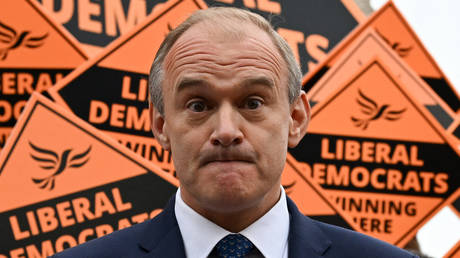
Liberal Democrats will discuss “trans and non-binary people” with periods at party conference
A major opposition party in the UK has put forth a policy proposal that would blame the ruling Tories for “period poverty” experienced by trans and nonbinary persons, as well as biological women. The proposal was listed on the agenda of next month’s Liberal Democrats’ party conference.
“Conference notes that … menstruation is not just a women’s issue, and also affects some trans and non-binary people,” according to the document, as quoted by the Daily Telegraph on Monday.
“Conference believes that period products are a human right, not a luxury; nobody should experience period poverty; England’s current free period product provision is not fit for purpose; [and]it is in everyone’s interests for the stigma around periods to be addressed,” adds the proposal, which is on the agenda for the September 23 annual conference in Bournemouth.
Period poverty has been defined as lack of access to menstrual products and hygiene facilities. The cost of living in England has increased so much, due to the “chaotic” Conservative government, that this has become “an issue that needs addressing urgently,” a party spokesperson told the Telegraph.
London should make it a right for people to access a choice of free period products, obligate councils and schools to also make them freely available, and introduce “comprehensive education on period … to ensure an appreciation for the lived experience of menstruation,” according to the proposal.
Sir Ed Davey’s party appears to be mirroring Scotland’s approach. The Period Products Act adopted by the Holyrood in 2020, which went to effect in August 2022, made it a legal duty of local authorities to provide tampons and sanitary pads to “anyone who needs them.”
According to the Lib Dems, this absolutely applies to individuals who self-identify as trans women, and “are not required to have undergone any medical or social transition to be considered trans,” according to the party’s official website.
The onetime coalition partner of the Tories currently has 15 out of the 650 seats in the House of Commons, and is the fourth-largest in the UK, after the Scottish National Party (SNP).




